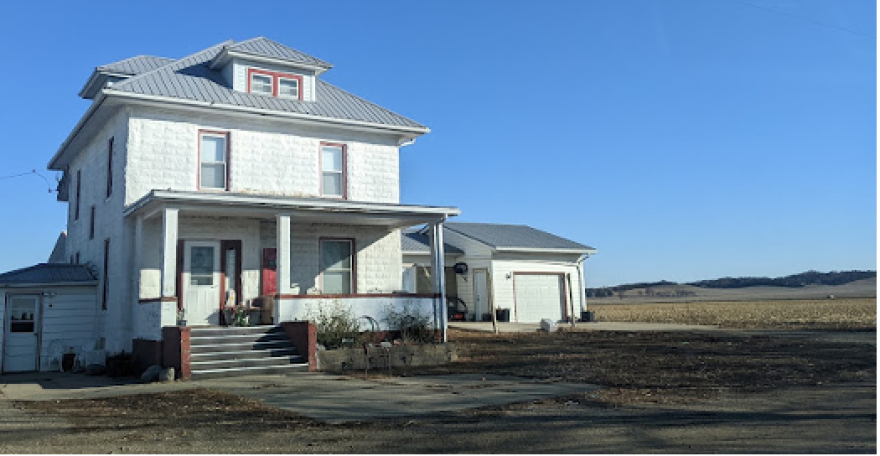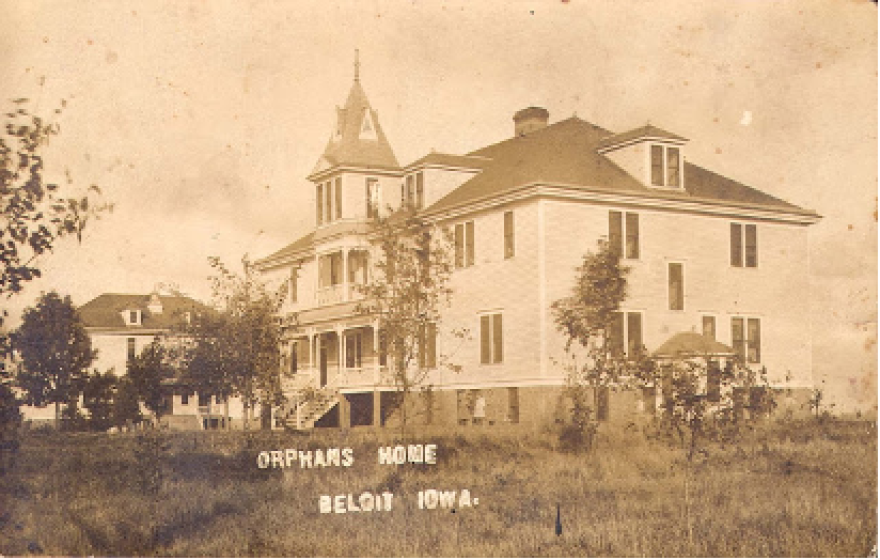A yellowing photo includes a whole raft of school-age kids, middle schoolers with high schoolers thrown in. But some were younger, too. At its height, the Norwegian Lutheran Children's Home, Beloit, Iowa, was home to 175 kids, their only home.
Never heard of Beloit? You're not alone. It was once a booming little burg on the banks of Big Sioux. Once there was an academy here, but the academy eventually moved up river a few miles to Canton, when a more spacious building could be had.
Then again sometime later, that very school, Augustana Academy, moved once more up the road to Sioux Falls, where it became Augustana College, and now Augustana University. Started right there in Beloit, a town that mostly isn't there anymore. Population? --maybe fifty in a storm, probably fewer if the Big Sioux is flooding.
About the only reminder of the Children’s Home is a square, three-storied farm house, once a school. A few years ago, a cupola stood in the front yard, another remnant, gone now.

There's a water tower out back and a shed or two that hearken to an otherwise unrecognizable past. More than 75 years have blown past since the place was home for orphans. It closed its doors in 1945.
Whether or not it was an orphanage could be debated. Most of the kids weren't orphans at all.
"Mother was sick most of her life. She had Tuberculosis," one of the kids wrote long, long ago. "We moved a lot trying to find a dry climate for her. The last place we lived was near Mason City. Mother became so bad she was bedridden."
Her story isn’t unusual, and there's more: "I'll never forget the last time we saw her, so sick; she hugged us all. We were taken to Beloit and later she died. We were, I remember, a sad and lonely four kids for some time." Early deaths were not uncommon back then, but neither was another loss she remembers well, too: "Dad came to see us maybe three times. . ."
Orphans weren't so much orphans as neglected, even forsaken, children left to bear a lifetime's sadness, simply forgotten.
A mile north, the Beloit cemetery features a stately marker that notes the deaths of some of the kids who never left Beloit, who died of one malady or another.
The history of residential schools like Beloit Children's Home takes a beating today because few kids of the era could be so easily exploited as unwanted, unloved kids. The horror of that abuse means any reference at all to a place like Beloit's Children's Home makes people cringe.

But some of those locals who walked the grounds were saints, determined to give castaways whatever volume of love they could, in this world and the next.
And that gift still exists. Even though what's there on the grounds of the Beloit Children's Home is not recognizable of what once was, Beloit Children's Home still exists. But it’s got a new address. Look it up. Today, Beloit Children's Home is in Ames, Iowa, where a descendent institution helps tough kids find a way to give life a go.
That old, long-gone Home, with the aid of two or three other similar homes in the state, was the beginning of an outfit called Lutheran Social Services. You may have heard of it. They do really good work.
So if you choose to take note of what's left of Beloit someday, just smile as you pass through, and remember those local folks who helped out by showing kids how to wash dishes and milk cows, just remember those people believed just as firmly in a principle Lutheran Social Services still extols-- "Practicing Compassion Will Change the World."
Consider this: Augustana University and Lutheran Social Services both started up right here—that’s not a bad record for any little burg.
Go ahead and smile because this ghost town was also a place for dreams.







